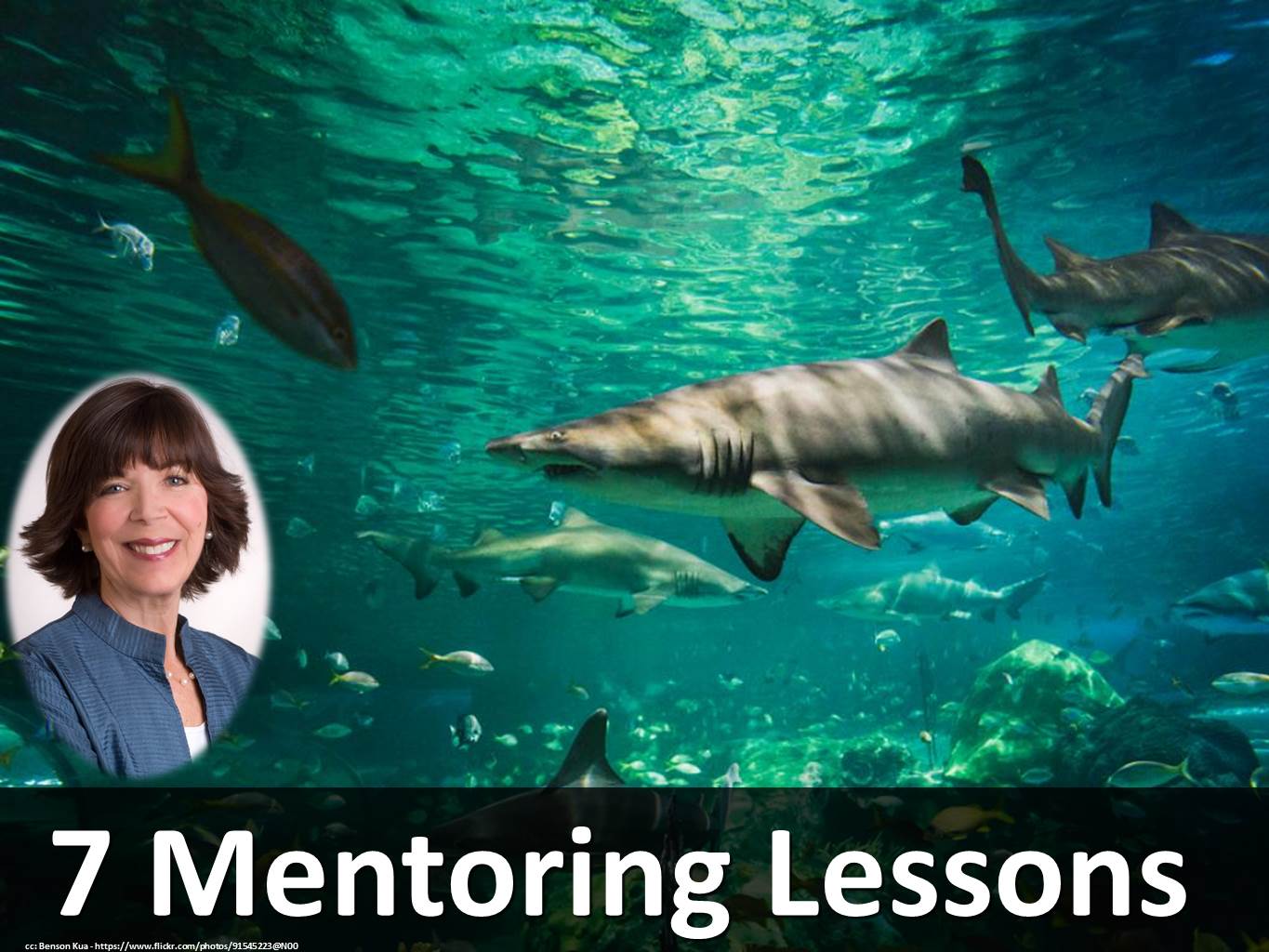
7 Mentoring Lessons from Shark Tank
While you may not have seen Shark Tank on TV, chances are you’ve heard of it.
In each episode, would-be entrepreneurs who have struggled for years to get their product or idea to market enter the “shark tank” where they meet a panel of potential investors, called “Sharks” who will help them realize their dreams . . . for a price.
Each entrepreneur has 2-3 minutes to convince five savvy Sharks that their product and passion is worthy of investment, time and financial support. Having a Shark on their team may position them to capture the attention of big retailers like Walmart or Costco and give them access to a huge customer base. It is no wonder that an entrepreneur gains confidence and renewed energy with a Shark on their team.
During each 30-minute episode of Shark Tank, the Sharks challenge each entrepreneur. They ask probing questions. How contestants respond offers keen insights and important messages about what you need to do to be successful as a mentee.
The Seven Lessons:
1. It isn’t enough to have an ambition or a dream. Sharks are interested in more than just a good idea. They are investing in you as much as they are in your product. It is your drive and passion that will make a difference.
Mentoring message: To enlist the support of a high-powered successful mentor, demonstrate passion and energy for your career growth and development.
2. Successful entrepreneurs craft concrete business plans that create and grow market share. Sharks are tenacious in dissecting plans to ensure they are realistic and are likely to succeed.
Mentoring message: Mentoring is more than interesting conversation about an idea. Mentors deepen their investment in you when they see you have a plan and make steady progress towards achieving concrete results.
3. Sharks are tough. They ask hard questions and expect answers. They expect their time to be well spent and rewarded.
Mentoring message: Do your homework and come prepared. You need to be primed for meetings with your mentor.
4. Swimming with sharks is not for the faint of heart. You may hope to hear praise, but expect honest and straightforward feedback that will make your idea better.
Mentoring message: Mentors provide support and frank and candid feedback that you may receive in your work world. Embrace it. Act on it.
5. A good idea can be easily dismissed if it doesn’t catch the Sharks’ attention. Polish and presence sell an idea. If you lack confidence or good presentation skills, you won’t get very far.
Mentoring message: Presence is an important quality for leadership success. Mentors and others gravitate to people who articulate ideas in a persuasive way. Work on your communication skills.
6. Sharks can offer three things: money, access to markets and business acumen. They aren’t going to run your company or tell you what to do to be successful. Ultimately, you are in the driver’s seat.
Mentoring message: Mentors aren’t going to tell you what to do either. They can help you expand your network and perspective, but it is up to you to drive your direction and do the work.
7. When Sharks make a deal, they celebrate the agreement. They hug. They shake hands. They end on a high note.
Mentoring message: Take time to celebrate and show appreciation. Showing emotion and enthusiasm is part of the special relationship between mentors and mentees.






